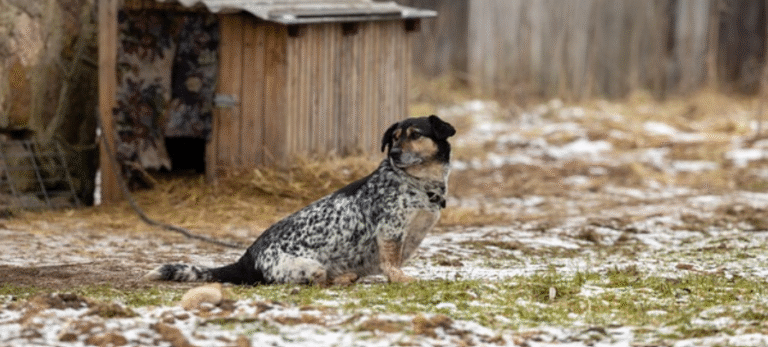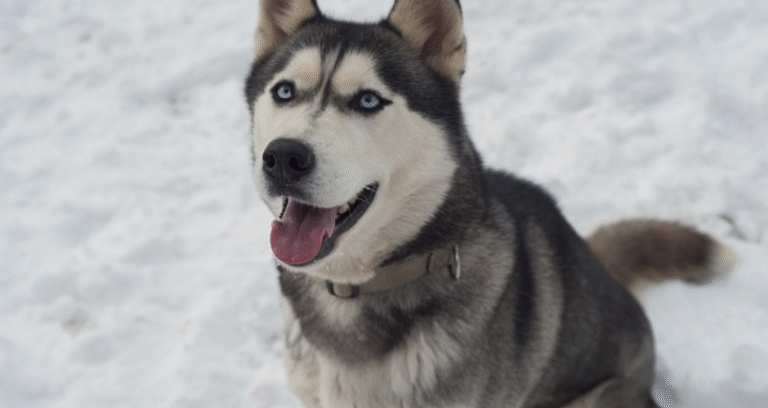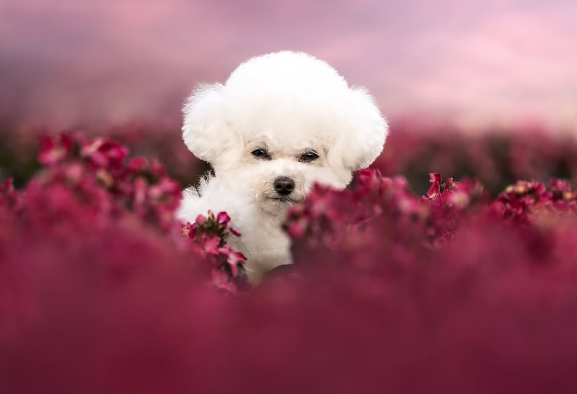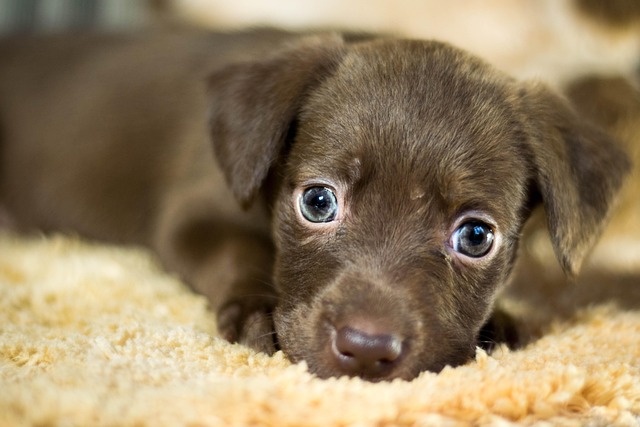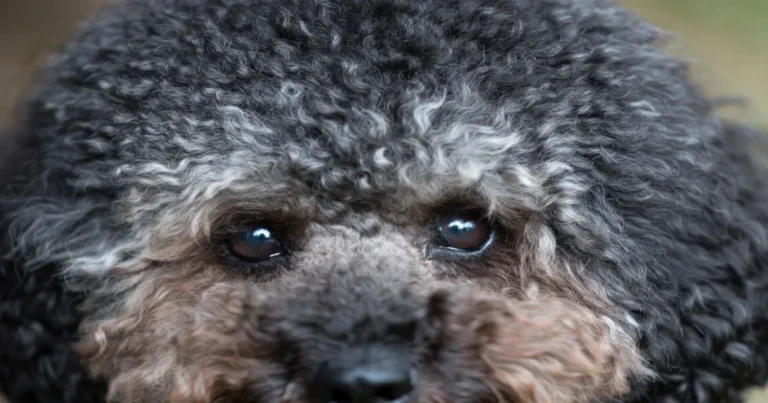Bichon Frise cross Poodle puppies are tiny little dogs. They’re sometimes called Bichpoos or Poochons, a mix between a Bichon Frise and a Poodle.
Renowned for their cuddly coats and playful dispositions, these cross pups make wonderful additions to families in cities like New York, San Francisco, and Seattle. Most popular of all, they have low-shedding hair, which is a feature that gets them adopted widely among allergy sufferers.
Bichons are usually intelligent, trainable, and eager to please. As adults, they tend to be 10 to 18 pounds and enjoy playing and cuddling with their humans.
These puppies easily adapt to apartment-style living or a larger home and usually get along very well with children and other household pets. The next sections describe what it’s like to care for them, their unique traits, and how they integrate into daily life.
What Is a Bich-Poo Puppy?

A Bich-poo, sometimes called a Poochon, is a crossbreed that blends the Bichon Frise’s charm with the Poodle’s smarts. These puppies are bred to be small, loving, and easy to live with, making them a good fit for homes in cities or suburbs.
Their build is sturdy, with a slight rectangle shape, and most adults weigh between 6 and 17 pounds. People choose Bich-poos for their moderate energy, friendly nature, and ability to get along with kids and adults alike.
The Bichon Frise Heritage
The Bichon Frise brings a soft, curly white coat, plus a sweet and gentle way with people. Known for being playful but not too wild, Bichons have a long history as companions.
Their soft coats make them a favorite for folks who want a dog that sheds less, but it does mean weekly brushing and trips to the groomer every month or so. Bichons add a happy, social side to the Bich-poo mix.
Understanding Poodle Influence
Poodles stand out for their brains and active streak. In a Bich-poo, this means a puppy that learns fast and loves games that work their mind.
Poodles pass on a coat that’s less likely to cause allergies, but this coat needs regular upkeep to stay neat. The Poodle side keeps the Bich-poo sharp and quick to bond with people.
A Unique Designer Mix Story
The Bich-poo isn’t just about looks. They need daily walks and play to keep them happy.
These dogs do best when someone is home most of the day since they can get stressed if left alone. They benefit from short, upbeat training sessions and lots of praise, making them easy to train for most families.
All About Your Bich-Poo Puppy

Bichon Frise cross Poodle puppies, often called Bich-Poos or Poochons, have become a popular choice for families and singles across the U.S. Their blend of size, smarts, and charm fits well in both city apartments and suburban homes.
Here’s a closer look at what shapes these pups.
1. Predicting Their Adorable Looks
Bich-Poos are small, with most weighing 6 to 20 pounds and standing 9 to 15 inches at the shoulder. Their curly coats can range from soft waves to tight ringlets, coming in white, cream, apricot, or a mix.
This coat does shed less, but keeping it clean means daily brushing and routine trips to a groomer. Some folks trim the coat short for less upkeep, while others keep a fluffy look for that teddy-bear vibe.
2. Unpacking Bich-Poo Temperament Traits
This crossbreed is known for being friendly, affectionate, and gentle. Bich-Poos often bond closely with people of all ages, from children to older adults.
They may bark when bored or scared, and by four months, they can be wary of strangers. They thrive on attention and can get lonely if left for long stretches.
3. Energy: Zoomies or Snuggles?
Bich-Poos have a playful side and enjoy short bursts of activity, like fetch or brisk walks. At home, they often shift to snuggle mode, curling up beside you after playtime.
Their moderate energy suits many lifestyles.
4. How Smart Are These Pups?
High intelligence makes Bich-Poos easy to train. They respond well to praise and treats, so learning commands or even simple tricks often comes quick.
First-time owners appreciate this trainability.
5. The Special Bich-Poo Blend
Bich-Poos can live 12 to 15 years or more with proper care. Regular grooming, daily tooth brushing, and vet checks help prevent health issues like hip dysplasia or eye disease.
Their loyal, lively nature makes them a good fit for many homes.
Daily Care for Your Bich-Poo

Caring for a Bichon Poodle, or Bich-poo, involves more than just giving cuddles; it’s essential to consider their daily needs for a happy pup. This designer dog breed boasts a curly, dense coat, lively spirit, and a love for routine, making it a fantastic family dog.
Mastering That Fluffy Coat
A Bich-poo’s coat is soft and curly, often with little shedding. Brushing every day or at least every other day helps stop mats and keeps the coat neat. Some pups might have an undercoat, while others don’t, but all need regular grooming.
Use a slicker brush or a comb to reach through the curls. Grooming is not just for looks. It keeps skin healthy and lets you spot problems early. Don’t forget the ears—Bich-poos get ear infections often, so check and clean inside their ears each week.
Trim their nails every other week to keep their paws comfy.
Best Diet for Growing Pups
Find a premium dry food formulated for small breed dogs. These growing pups are happiest when they have defined feeding times with controlled portions. Healthy food is particularly important to make their coat glimmer and encourage even growth.
Provide fresh water at all times. Treats are okay just be sure they are healthy treats, and you don’t overdo them or your pup will pack on extra pounds.
Essential Exercise Routines
Bich-poos, a delightful hybrid dog breed, need at least 30 minutes of activity every day. Engaging walks around the block, playtime in the yard, or short games indoors work well for these intelligent dogs. Incorporate some fetch or puzzle toys to keep their minds busy.
Creating a Puppy-Proof Home
Prevent puppies from chewing by keeping cords, shoes, and small items out of reach. Create a calming environment by providing a soft bed in a low-traffic area.
Consider using gates to prevent access to dangerous spaces. Routine cleaning even further ensures that this area is a safe, welcoming space to come home to.
Bich-Poo Health and Longevity

Bichon Frise cross Poodle puppies, often referred to as poochon puppies or Bich-Poos, tend to be hardy, but they have a few health needs unique to their mixed breed. These intelligent dogs combine the Bichon’s lively spirit with the Poodle’s cleverness, influencing their health profile and life span.
Common Health Considerations
Bich-Poos do face some known health issues. Bichons often get eye problems, like corneal dystrophy and cataracts. Regular vet visits can help spot these early.
Their ears, covered with thick hair, make them prone to ear infections, especially if not cleaned often. Dental health is another big concern. Many Bichon Frises develop dental disease, so brushing teeth and offering dental chews is key.
Some Bich-Poos might get high blood sugar, which, in rare cases, needs daily insulin and a special diet. Owners should watch for signs like eye ulcers or changes in barking, as these can mean a health problem.
How Long Do Bich-Poos Live?
A healthy Bich-Poo often lives up to 15 years. This long life comes from solid genetics and good care. Dogs that get regular exercise, quality food, and lots of attention tend to stay healthier longer.
Key Vet Care and Prevention
Routine checkups help catch problems early. Grooming, especially cleaning ears and brushing teeth, lowers the risk of infections.
For Bich-Poos prone to separation anxiety, training and calming treats can help ease stress.
US Climate Impact on Health
In hot and humid conditions, the risk of ear infections in small dog breeds increases, while dry environments can lead to skin issues. Dogs, including poochon puppies, living in more polluted areas like urban Los Angeles might require additional grooming to brush soot particles out of their coat and ears.
Training Your Clever Companion

Bichon Frise cross Poodle puppies, known as Poochons, are known for their intelligent natures and affectionate personalities. Their combination of high intelligence and goofiness makes them a great fit for urban environments. They require careful training from the get go. A thoughtful approach paves the way for these small wonders to thrive.
They’ll develop into well-adjusted, mellow companions who blend in beautifully, from the bustling family home to the serene flats!
Early Socialization is Crucial
Poochons do best when they’re introduced to a variety of other dogs, people, and noises at an early age. Properly socializing a puppy in a calm, controlled manner will ensure that your pet can adapt to new environments and people with confidence — not fear.
Regular trips to a local park, short car rides, and slow introductions to family and friends are all beneficial. When you socialize early, you reduce the likelihood of fear or barking as an adult and create the foundation for a calm, social canine.
Positive Reinforcement Training Wins
Like all breeds, this one quickly learns what is most successful, so positive reinforcement is the most effective. Reward them with a treat, toy, or positive verbal affirmation when they obey a command.
We want training sessions to remain brief—around ten minutes—because Poochons lose interest fast. Repeat these bursts a few times a day for consistent progress. This approach fosters a positive rapport with the dog and reinforces their motivation to learn.
Managing Common Puppy Habits
Poochons are known to develop behaviors such as chewing or teething issues. Provide safe chew toys and redirect as necessary.
Potty Training should be your number one priority. Established routine and positive reinforcement go a long way. Begin leaving them alone for brief periods of time so they learn to be comfortable with your absence without becoming anxious.
Apartment Living with Bich-Poos
When their needs are provided for, these pups adapt well to apartment living. Daily walks and vigorous indoor play are both needed to keep energy in check.
On days with wet weather, indoor activities or puzzle toys can help burn off some pent-up energy. A firm schedule and consistent guidelines make apartment living very easy for both canine and human.
Finding Your Bich-Poo (USA Focus)

Looking for a Bichon Poodle or Bich-poo, a popular hybrid dog breed, takes some real thought. These dogs, known for their friendly natures, require consideration beyond just looks, including their energy levels and grooming needs. If you want a loyal family dog, ensure their temperament matches your lifestyle. In the US, options for finding a poochon puppy are wide, but selecting the right source is crucial.
Choosing Reputable US Breeders
First, begin your search by seeking out breeders who prioritize the health and socialization of their dogs. Responsible breeders provide health clearances, provide proof of vaccinations, and allow you to meet in person. For one, they have a ton of advice on care, and they answer any questions you may have about the puppy’s parents.
Request references from past puppy owners and follow up with them. Check out reviews online. For instance, California and Texas breeders are more likely to have established relationships with local veterinary offices and offer thorough aftercare support. By working with a reputable breeder, you can get ahead of potential health problems such as patellar luxation or hip dysplasia.
Exploring Adoption and Rescues
Adopting from a rescue or shelter is another path. Rescues like Bichon Rescue Brigade or Poodle mixes in larger cities often have Bich-poos—sometimes adults, sometimes puppies. This choice gives a dog in need a second chance.
Most rescues in the US offer health checks and a foster period so you can see if the dog fits your home.
Understanding Ownership Costs
Owning a dog, especially a poochon puppy, isn’t cheap, and costs can add up. In addition to the adoption or breeder fee from poochon breeders, one must consider grooming each month, routine vet visits, and supplies. Grooming is essential to prevent their coat from matting, with most owners scheduling a visit every four to six weeks.
Great for New Dog Owners?
Great for new dog owners, poochon puppies require long daily walks and mental stimulation, as well as frequent companionship to prevent separation anxiety. When properly cared for, these loving dogs have a lifespan of 12–15 years and are extremely devoted companions.
Conclusion
Bichon Frise cross Poodle puppies would be perfect in almost any household in the U.S. There’s no doubt that these pups offer the cutest little dose of sunshine to your day. They’re passionate, they’re eager to learn, and they bring a tremendous amount of heart. You get an instant shadow who doesn’t leave your side! They adapt to your lifestyle, no matter if you live in a small apartment in the city or a home with a big yard.
Their coats remain soft with regular brushings, and their size makes them ideal for a variety of people. Just ask the thousands of families who’ve found these little dogs to be bundles of joy and warmth. For all of you who are just about to make a clever, frolicking furball your new companion, visit pet rescues in your area or find reputable breeders. A Bichon-Poodle mix might just be the perfect addition to your household.
Frequently Asked Questions
What is a Bichon Frise cross Poodle called?
What is a Bichon Poodle? A popular hybrid dog, this designer dog breed is loved for their playful personalities and hypoallergenic fur.
How big do Bich-Poo puppies get?
Most poochon puppies, a lovable hybrid dog breed, grow to be 10–15 inches tall and weigh between 10–18 pounds when fully grown, making them a perfect size for apartments or homes.
Are Bich-Poo puppies good for families with allergies?
Yes, Bichon Poodle puppies, also known as poochon puppies, are usually hypoallergenic thanks to their poodle heritage, shedding very little and making them ideal for allergy sufferers.
How much exercise does a Bich-Poo need?
Bich-Poo puppies, a delightful hybrid dog breed, need daily walks and playtime; about 30 minutes to an hour of activity each day keeps these loving dogs happy and healthy.
What is the typical lifespan of a Bich-Poo?
Bich-Poo dogs, a popular designer dog breed, often live 12–15 years with proper care, including regular vet checkups and a healthy diet.
Are Bich-Poo puppies easy to train?
Yes, Bich-Poos, a hybrid dog breed, are very intelligent and eager to please, making them excellent family pets.
Where can I find Bich-Poo puppies in the USA?
You can find Bichon Poodle puppies through reputable poochon breeders, rescue groups, and adoption sites, ensuring ethical practices and healthy poochon guarantees.


